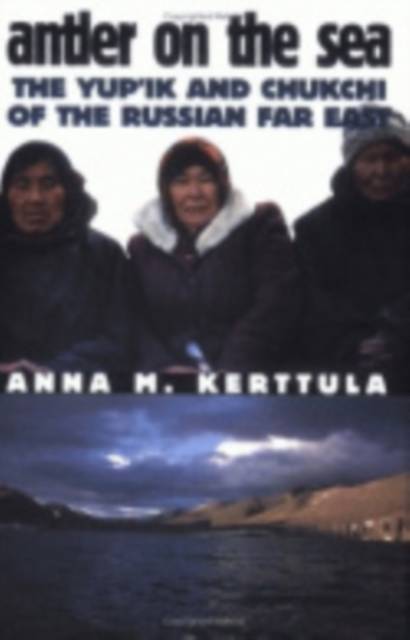
- Retrait gratuit dans votre magasin Club
- 7.000.000 titres dans notre catalogue
- Payer en toute sécurité
- Toujours un magasin près de chez vous
- Retrait gratuit dans votre magasin Club
- 7.000.0000 titres dans notre catalogue
- Payer en toute sécurité
- Toujours un magasin près de chez vous
Description
Anna M. Kerttula, an anthropologist, offers a vivid portrayal of life in Sireniki, a Siberian village on the Bering Sea. Once a traditional Yup'ik community, it was by the final years of the Soviet Empire home to three cultural groups: the Yup'ik, native hunters of sea mammals; the Chukchi, nomadic reindeer herders who had been required by the state to turn their animals over to cooperative farms; and Russians of European ancestry enticed to the region by incentive programs designed to colonize the Russian Far East. Kerttula, who lived among the villagers for eighteen months, draws on her experiences to explore how each group's beliefs and customs have transformed those of the other two. Her book shows the endurance of the indigenous cultures of Far Eastern Russia despite years of intrusion by the Soviet state.The author describes in rich detail how the Yup'ik, the Chukchi, and the Russian "newcomers" developed a sense of cultural difference because of their separate symbolic systems and yet cohered as a community. She explains that relations among the groups have become tenuous since the breakup of the Soviet Union and the subsequent collapse of the local economy. Kerttula's research provides a unique perspective on today's ethnic rivalries within the former USSR. She maintains that these conflicts, not always expressions of ancient animosities, may be efforts toward mutual understanding during times of economic and social change.
Spécifications
Parties prenantes
- Auteur(s) :
- Editeur:
Contenu
- Nombre de pages :
- 208
- Langue:
- Anglais
- Collection :
Caractéristiques
- EAN:
- 9780801486852
- Date de parution :
- 24-10-00
- Format:
- Livre broché
- Format numérique:
- Trade paperback (VS)
- Dimensions :
- 152 mm x 227 mm
- Poids :
- 299 g

Les avis
Nous publions uniquement les avis qui respectent les conditions requises. Consultez nos conditions pour les avis.






